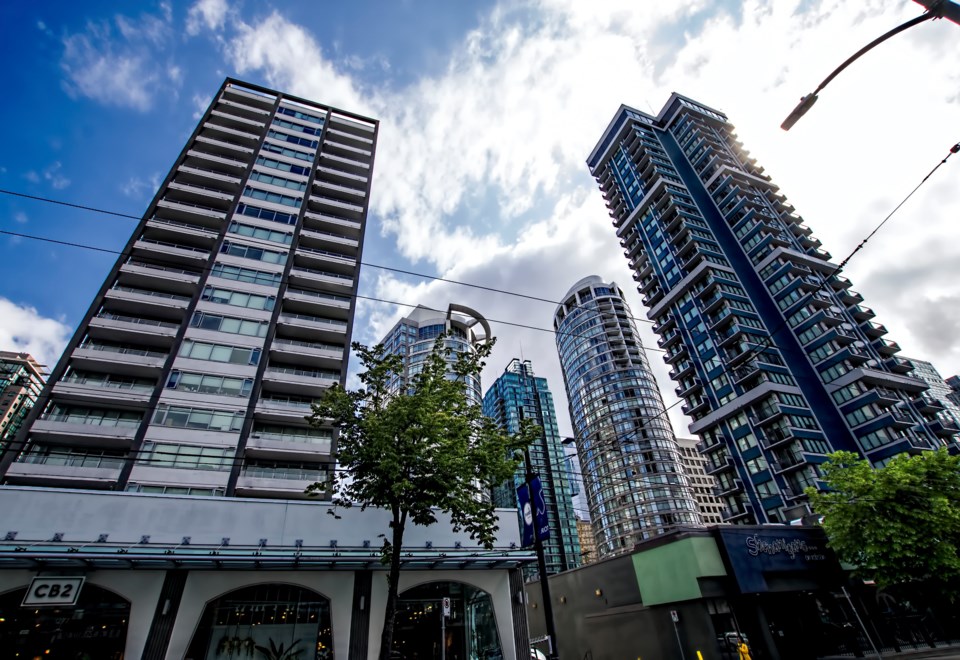This year, Vancouver property taxes increased by 7.5 per cent, and a City of Vancouver staff report indicated that another seven-per-cent increase is needed for 2025. This isn’t an isolated case. Across the province, cities are facing rising costs and dwindling revenues, specifically from development fees and charges on new construction.
For years, rising real estate prices were a boon for city coffers, allowing cities to freeze property taxes by increasing development fees and obligations. This worked when prices boomed. Landowners got a premium to sell their sites to developers, cities could charge high fees and levies, and developers would still be able to make a fair profit.
That has now changed. With flat or falling prices, ever-increasing costs and cities continuing to demand high fees and concessions, many projects have become financially unfeasible. Recently, four significant projects in Vancouver were delayed because of the current market conditions. Together, they were set to pay the city over $89 million in fees.
While our economic landscape has shifted, the approach to development hasn’t, and municipal governments continue to increase fees far faster than inflation. Last year, Metro Vancouver increased its development cost charges (DCC) for a typical residential lot to $34,133 from $10,027, and to $20,906 from $6,249 for each apartment unit.
In response, some municipal leaders have called for a dramatic slowdown in population growth, largely driven by immigration, to allow infrastructure to catch up. However, this view overlooks the reality that much of our infrastructure spending is needed just to maintain and replace what we already have. In Vancouver, 150 kilometres of sewers are more than 100 years old and well past their expected lifespan. On the North Shore, despite lower growth rates compared to the rest of Metro Vancouver, a multibillion-dollar wastewater treatment plant is needed. And TransLink requires billions more just to maintain our current levels of service.
The bottom line is that much of the infrastructure built in the 1950s and 1960s across the region is reaching the end of its useful life and will need to be replaced—regardless of whether the region grows.
We are now realizing that excessive regulation, studies and taxes imposed by municipal leaders to deter growth and penalize private developers also impact infrastructure investments. Port Coquitlam Mayor Brad West has expressed frustration over the slow progress in rebuilding an elementary school nine months after it burned down. Similarly, three years after a devastating wildfire, the town of Lytton has yet to rebuild despite spending $239 million on reconstruction efforts. Neither of these infrastructure challenges has anything to do with rapid population growth.
Instead, they are prime examples of how, rather than building, we are burdening our region with excessive studies, consultations, regulations and taxes.
Moving forward, municipalities can no longer rely solely on taxing new development to fund all existing and future infrastructure needs. This shift means that incumbent residents will face increasing tax burdens, leading to a negative economic cycle where high tax rates suppress economic activity, resulting in even higher taxes to make up for the shortfall. This is the current trajectory—called a doom-loop—which explains why Metro Vancouver tax rates are expected to increase significantly for the foreseeable future.
Fortunately, there is a potential solution.
Vancouver remains a desirable place to live, attracting people from around the world. By reducing the tax and regulatory burden on new development, we can stimulate growth in the sector, create high-paying local jobs and promote broad economic prosperity. This approach would lead to lower home prices and improved affordability, attracting more people to the region. Increased population would then spread the cost of infrastructure over a larger tax base, reducing the burden on individual residents.
This requires viewing the real estate sector not as an adversary to be reined in, but as a partner in our shared prosperity. The development and construction industries in our province are ready to build. Politicians just need to let us.
Dan Scarrow is president of Lyndan Properties.




